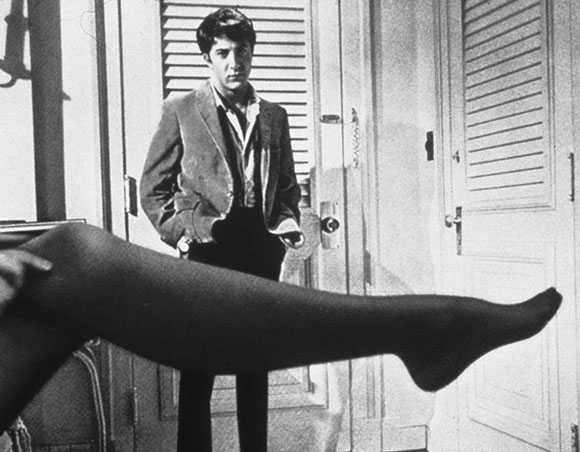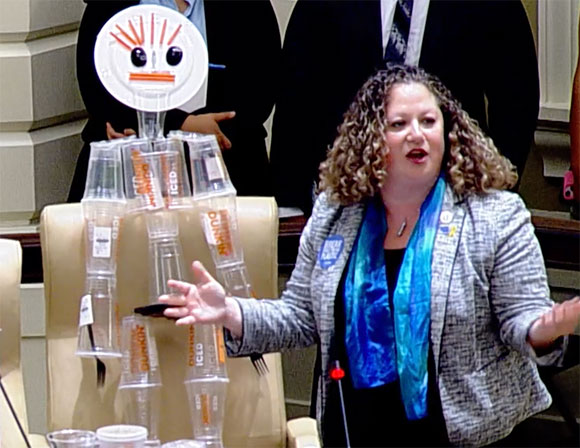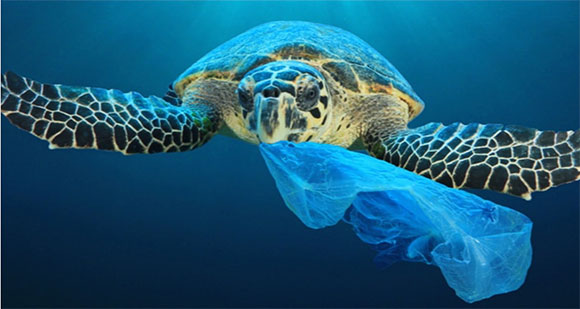(The opinions and views expressed in the commentaries and letters to the Editor of The Somerville Times belong solely to the authors and do not reflect the views or opinions of The Somerville Times, its staff or publishers)

By State Senator Pat Jehlen
On Thursday of last week, the Senate passed (38-2) an important comprehensive bill to reduce the use of single-use plastics. Hundreds of you, my constituents, have asked us to reduce the use of plastics.
(We were also planning to pass a climate/energy bill, but Republicans tabled it. We went back Friday, and they tabled it again, so we’ll pass it Tuesday, and then move on to the Housing Bond bill Thursday. Busy days at end of session!)
The Plastics Bill
S.2830, An Act to reduce plastic will prohibit carry-out plastic bags at retail stores and require stores to charge 10 cents for recycled paper bags, five cents of which will be allocated to environmental protection measures. There’s a limited exemption from the 10-cent requirement for small local retailers. All the communities in our district already prohibit single-use ban plastic bags.
The bill will also prevent plastic utensils and straws from automatically being given to consumers, prohibit single-use plastic bottle purchases by state agencies, and create a statewide program for recycling large plastic objects such as car seats. Finally. the bill will require non-flushable wipes to be labeled “Do Not Flush” to avoid $10 m year in costs to our sewer system.
The legislation now goes to the House for consideration.
Career Advice for The Graduate
In the1967 movie The Graduate, Dustin Hoffman’s character receives career advice: “I just want to say one word to you… Plastics. There’s a great future in plastics.” For sure plastics has been a growth industry.
Senator Rausch explains the plastics problems
Sen. Becca Rausch, chair of the Committee on the Environment and Natural Resources, said the harms of plastic begin with the fact that 99% of it is made from fossil fuels. “We produce… around 500 million tons [of plastic] every year. Half of that is…single-use plastic.” A plastic shopping bag is used for about half an hour, and in the ensuing centuries it goes to a landfill “where it degrades over hundreds of years releasing greenhouse gasses …and breaking down into microplastics that infiltrate our bodies.” Or it’s “incinerated and turns instantly into toxins and greenhouse gasses.” Between 5-9% is recycled, and plastic bags are more likely to jam the recycling machine than to be recycled.
Sen. Rausch displayed “Plastic Pete,” a sculpture her children made from plastic waste.

She added, “Massachusetts uses more than 2 billion plastic bags a year … or 10 million gallons of oil. We also throw away 3.4 billion plastic bottles every year … We dispose of 2500 tons [of plastic waste] each and every day… A bag persists for 20 to 300 years. A straw or bottle takes centuries to break down, and for cutlery it’s up to 1,000 years. This leads to microplastics, the little bits of plastic that stay in the soil and water and atmosphere and in humans, too.”
Sen. Rausch cited a study from this year of “200 people undergoing heart surgery, and 60 percent had microplastics in a main artery. Those patients were 4.5 times more likely to experience a heart attack, stroke, or death in following months.”
Sen. Jason Lewis and Turtles

Sen. Jason Lewis, who co-founded the Zero Waste Caucus with Rep. Michelle Ciccolo, added more data about the harms of plastics. He said that “by 2050 there will be more plastic in our oceans than fish. The so-called Great Pacific Garbage Patch, much of it plastic debris, covers an area twice the size of Texas. Less than 10 percent of post-consumer plastic waste is actually recycled in reality.”
He recalled that Senate President Karen Spilka visited the Vancouver aquarium and saw “a beautiful turtle, that had died. And when the turtle was opened up to see what caused the death, its stomach was stuffed full of plastic bags. It had been eating bags… because they look like jellyfish.”
VEEP learns about power

There are so many cultural references to plastics! In the first episode of VEEP, Vice President Selina Meyer planned to speak about reducing plastic use when she replaced the president at a fundraiser. But the White House staff crossed out most of her speech. She concluded that “Plastics must have gotten to the president.”
Song of the Month

Sing along Pete Seeger about plastic and other kinds of Garbage!: https://www.youtube.com/watch?v=BX14qeHlVj4















Adding a 10 cent “tax” for each recycled paper bag is a tone deaf response to the average person these days when one of their top concerns is inflation and the high cost of groceries.
As for the ” allocated to environmental protection measures.” Let’s be real, it’s going to wind up in the general fund